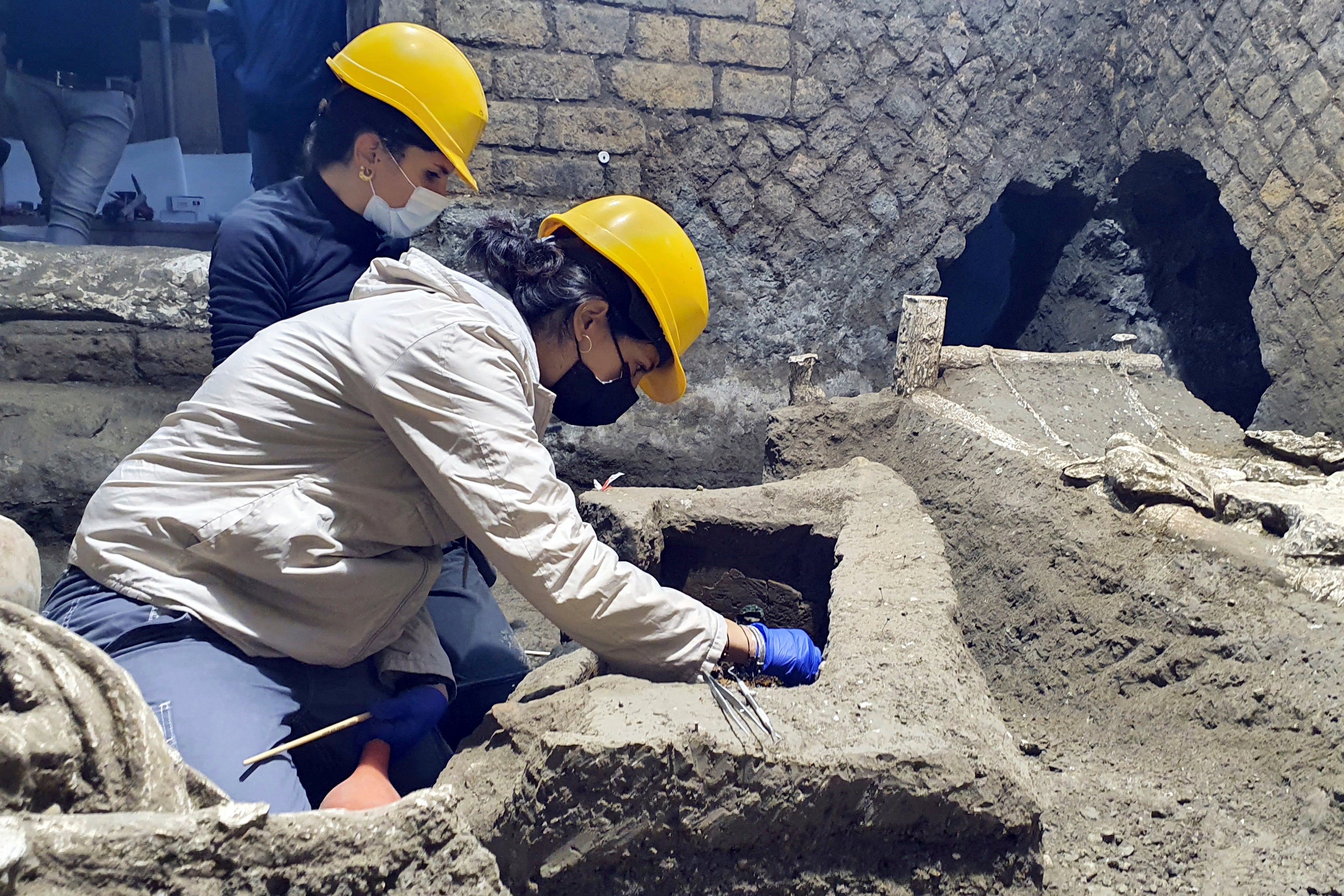Pompeii dig yields rare window on daily life of enslaved
Archeologists in Pompeii have discovered a room that officials say offers “a very rare insight into the daily life of slaves” in the ancient Roman city

Your support helps us to tell the story
From reproductive rights to climate change to Big Tech, The Independent is on the ground when the story is developing. Whether it's investigating the financials of Elon Musk's pro-Trump PAC or producing our latest documentary, 'The A Word', which shines a light on the American women fighting for reproductive rights, we know how important it is to parse out the facts from the messaging.
At such a critical moment in US history, we need reporters on the ground. Your donation allows us to keep sending journalists to speak to both sides of the story.
The Independent is trusted by Americans across the entire political spectrum. And unlike many other quality news outlets, we choose not to lock Americans out of our reporting and analysis with paywalls. We believe quality journalism should be available to everyone, paid for by those who can afford it.
Your support makes all the difference.Archeologists in Pompeii excavating a villa amid the ruins of the 79 A.D. volcanic eruption that destroyed the ancient city have discovered a room offers “a very rare insight into the daily life of slaves,” officials said Saturday.
Italy’s culture minister, Dario Franceschini, said the find was “an important discovery that enriches the knowledge of the daily life of ancient Pompeiians, in particular the level of society still little known.”
The room served as both a dormitory and a storage area, officials from the Archeological Park of Pompeii said. It was discovered in a villa in the Pompeii suburb of Civita Giuliana, just a few steps from where archeologists in January discovered the remains of a well-preserved ceremonial chariot.
The room, with just one high window and no wall decorations, contains the remains of three beds made out of wood. The beds were adjustable, with two measuring 1.7 meters (nearly 5 feet, 7 inches) and one just 1.4 (4 feet, 7 inches) meters, possibly indicating that a family with a child had lived there.
Nearby, a wooden chest contained metallic objects and textiles that “appear to be part of harnesses for horses," according to the archeological park., There also was a wooden steering element for a chariot.
Chamber pots and other personal objects were under the beds, while eight amphorae - a type of container - were in a corner, suggesting storage for the household.
The villa, with a panoramic view of the Mediterranean Sea on the outskirts of the ancient Roman city, is considered one of the most significant recent finds at Pompeii. It was discovered after police came across illegal tunnels dug by alleged looters in 2017.
Archaeologists also have uncovered the skeletal remains of two people, believed to have been a wealthy man and his male slave, who were stricken by volcanic ash attempting to escape death.